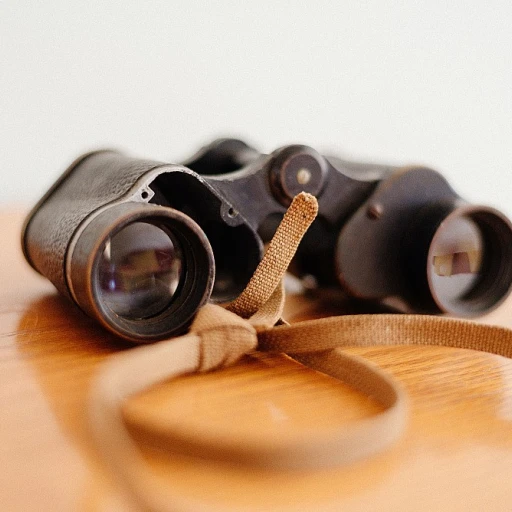Understanding the Role of a Sports Recruiting Coordinator
Grasping the Dynamics of Recruiting in Sports
The role of a Sports Recruiting Coordinator is a multifaceted position requiring an in-depth understanding of both athletics and the coordination needed for recruiting initiatives. Coordinators are integral to connecting aspiring athletes with collegiate programs, enhancing team strength through astute assessment of talent and fit. By identifying prospective student athletes, these coordinators serve as a linchpin between athletic department goals and the recruitment of promising talent. To succeed in such a role, it’s essential to possess a variety of skills including a keen eye for athletic ability, strong interpersonal skills to build rapport with students and coaches, and exceptional organization to effectively manage recruiting events. A successful coordinator demonstrates not only experience in the field but a passion for sports management. These elements are crucial to ensuring the recruitment process aligns with the targeted needs of sports programs and the institution's broader athletic objectives. Furthermore, the coordinator must work closely with athletic directors and other staff to align recruiting strategies with program goals. Meeting the unique demands of sports recruitment requires not only familiarity with the challenges student athletes face but also the strategic vision to streamline processes that attract top talent. This blend of skills and responsibilities highlights the need for a precise job description to attract qualified candidates. To explore more about preparing for HR job interviews and enhancing your job search strategy, check out our resources for HR job interviews.Essential Components of a Job Description
Incorporating Key Elements into Your Job Description
Crafting a comprehensive job description for a Sports Recruiting Coordinator involves blending pivotal components suited to both the role and the overarching sports industry. Here are some of the most critical aspects to include:- Core Responsibilities: Begin by outlining the main duties of the position. This usually includes identifying and recruiting top student athletes, coordinating with athletic directors and coaches, and organizing recruiting events. Clearly specify how the coordinator assists in planning and executing sports programs and managing team equipment.
- Requisite Skills and Qualifications: Detail the necessary qualifications and experience. Highlight skills such as communication, time management, and teamwork, which are essential in a sports environment. Include academic credentials and experience in sports management or as an athletic coordinator.
- Experience Levels: Specify the level of experience required for the role. It could range from experience in a previous coordinator job or similar athletic director job positions. Mention any familiarity with specific resume or work-related software such as Microsoft Word.
- Defining the Role’s Purpose: Make sure to articulate how the role fits within the organization's broader structure. Explain the role's purpose in enhancing team performance and supporting student athletes' growth.
Maintaining Consistent Tone and Clarity
An effective job description must be clear, concise, and easy to understand. Use direct language and straightforward terms to eliminate any ambiguity.- Use Active Voice: Active voice brings clarity and engagement to the description, directly addressing what the candidate needs to achieve in the role.
- Industry-Specific Terminology: Accurately incorporate terms familiar to the sports industry. This sets a professional tone and aligns the job posting with what experienced sports coordinators expect.
- Avoid Jargon: While specialized terms are useful, excessive jargon can deter potential applicants unfamiliar with niche terminology.
Tailoring the Job Description to the Sports Industry
Adapting the Job Description for the Sports Sector
When crafting a job description for a Sports Recruiting Coordinator, it is essential to tailor the content specifically to the sports industry. This adaptation not only attracts the right candidates but also ensures that applicants understand the unique demands of the role. Here are some strategies to consider:
- Highlight Industry-Specific Skills: Emphasize skills that are particularly valuable in the sports context, such as athletic coordination, team management, and sports program planning. These skills should be prominently featured in the job description to attract candidates with relevant experience.
- Include Relevant Experience: Specify any prior experience in sports management or coordination roles. Mentioning experience with student athletes or athletic directors can be particularly beneficial, as these experiences are directly applicable to the position.
- Responsibilities and Duties: Clearly outline the responsibilities that are unique to the sports industry. For example, assisting the athletic director in organizing sports events or managing sports equipment are tasks that should be explicitly mentioned.
- Emphasize Team Dynamics: The role of a sports coordinator often involves working closely with coaches, athletes, and other staff members. Highlight the importance of teamwork and collaboration in achieving the program's objectives.
- Use Industry-Specific Language: Incorporate terminology familiar to those in the sports field, such as athletic programs, sports management, and coordinator resume. This helps in attracting candidates who are already versed in the language of the industry.
By tailoring the job description to the sports industry, you can effectively communicate the expectations and attract candidates who are well-suited for the role. For further insights into crafting effective job descriptions, you can explore career opportunities at Sewell, which provides valuable resources and examples.
Keywords and Phrasing for Maximum Impact
Maximizing Impact with Strategic Keywords
In the competitive world of sports management, crafting a job description that stands out is crucial. The right keywords not only attract the best candidates but also ensure that your job posting appears in relevant searches. Here’s how to choose and utilize keywords effectively:
- Identify Core Responsibilities: Start by listing the primary duties of the sports recruiting coordinator. Use terms like athletic coordinator, sports coordinator, and student athlete to highlight the role's focus.
- Highlight Required Skills: Incorporate keywords that reflect essential skills such as sports management, program coordination, and event planning. This helps in targeting candidates with the right expertise.
- Emphasize Industry-Specific Experience: Terms like athletic director, sports programs, and student athletes can underscore the need for experience in the sports industry.
- Use Action-Oriented Language: Phrases such as assist staff, coordinate events, and manage equipment convey the dynamic nature of the role and attract proactive candidates.
Crafting Descriptive Phrasing
Beyond keywords, the phrasing of your job description plays a pivotal role in attracting the right talent. Consider these tips:
- Be Clear and Concise: Avoid jargon and keep sentences straightforward. For example, "Assist the athletic director in organizing sports events" is clear and direct.
- Focus on Impact: Use phrases that highlight the impact of the role, such as "Enhance the student athlete experience" or "Drive the success of sports programs."
- Tailor to Your Audience: If your target candidates are recent graduates, emphasize opportunities for growth and learning within the position.
By strategically using keywords and crafting compelling phrases, you can create a job description that not only attracts qualified candidates but also aligns with the specific needs of the sports industry.
Common Mistakes to Avoid
Avoiding Common Pitfalls in Job Descriptions
Crafting a job description for a sports recruiting coordinator is crucial, but it's easy to fall into some common traps. Here’s how to steer clear of mistakes that could hinder your recruitment process:
- Overloading with Jargon: While it's important to use industry-specific terms, avoid overwhelming potential candidates with excessive jargon. Keep the language clear and accessible to attract a wider pool of qualified applicants.
- Vague Responsibilities: Clearly outline the responsibilities associated with the coordinator position. A well-defined list of duties helps candidates understand what is expected and ensures they possess the necessary skills and experience.
- Ignoring the Team Aspect: Emphasize the collaborative nature of the role. Highlight how the coordinator will work closely with athletic directors, staff, and student athletes to support sports programs effectively.
- Neglecting Essential Skills: Focus on the specific skills athletic coordinators need. Include skills such as program management, event planning, and equipment coordination to ensure applicants are well-prepared for the job.
- Overlooking the Student Athlete Experience: Recognize the importance of the student athlete experience in the job description. This can attract candidates who are passionate about nurturing young talent and contributing to their development.
By avoiding these common mistakes, you can create a more effective job description that attracts the right candidates and sets the stage for successful HR interviews.
Using the Job Description in HR Interviews
Leveraging the Job Description in Interviews
When preparing for HR job interviews, utilizing a well-crafted job description for the position of a Sports Recruiting Coordinator can provide significant advantages. Here's how you can make the most of it:- Alignment with Responsibilities: Review the responsibilities detailed in the job description. Familiarize yourself with how your past experiences, whether leading a team or managing sports events, align with these duties. Demonstrating a clear understanding of your role within the sports coordinator context can impress interviewers.
- Showcasing Relevant Skills: The job description will likely outline key skills necessary for the coordinator position, such as team management, effective communication, and organizational abilities. Highlight these skills on your resume and be prepared to discuss specific instances where you applied them in a sports setting.
- Contextual Examples: Having explicit examples of how you have contributed to sports programs or assisted in athletic coordination can set you apart. Use the job description as a template to tailor these anecdotes, ensuring they're relevant and succinctly communicated.
- Preparation for Tough Questions: Interviews often include questions that test your problem-solving skills and adaptability within a sports program. Being well-versed in the job description helps you anticipate such questions and prepare responses that showcase your experience and expertise.
- Interactive Discussions: Engage with the interview panel by discussing how your understanding of the job description aligns with their expectations. This can lead to a more dynamic and engaging conversation, emphasizing your interest and commitment to the role.



